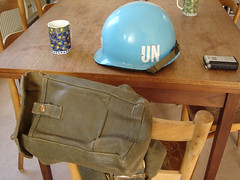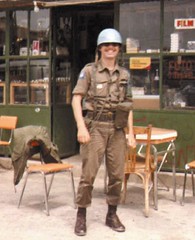I’m sitting in the Portuguese Consulate in Rotterdam today, for what is always an entertaining adventure. While there isn’t an enormous amount of Portuguese flocking to live and work in the Netherlands, there are still enough so that someone is inevitably standing in front of the little teller windows at the consulate trying to work out some complex paperwork issue. And of course, no matter what it involves, everyone winds up sitting around waiting for extended periods of time while things get processed.
My time is used by scanning the waiting room and piecing together the stories. That man has a newborn baby that needs its Portuguese papers, you can tell by how happy yet tired he is. This couple next to me is speaking in English, hers is Dutch accented and his is Brazilian accented; clearly a match made during some temporary situation where he was either studying or working in the Netherlands, now trying to find some citizenship loophole because of his Portuguese grandparents, hence the very long wait and the frustrated look.
The case that gets most of my attention is that of the father and his teenage son. Dressed up like any 16 year old emo boy, this one comes complete with studded belt and carefully messed hair. His father seems resigned to handling the details for his slacker son, going through each paper and filling in the info. Apparently his ID was stolen, now comes the painstaking task of proving who he is. But thats not the interesting part… what gets me is that his father is speaking only in Portuguese, as do most people who frequent the consulate. While the son, he keeps answering everything in Dutch. At some point the man behind the glass asks the father “doesn’t he speak Portuguese?” To which the father gives a tired answer, he can, he’s just lazy.
Oh how I remember that. In many ways I was looking in the mirror, only it is a different generation and we’re definitely not in the United States. The boy looked ashamed to be in this room with us. He also seemed like a fish out of water, constantly responding to Portuguese questions in Dutch. Again… the reminders of my own teenage years.
I turned to have a look at the bulletin board and try to stop focusing on this father and son. There I see information about the local Portuguese school. Further down, information about all the different levels of Portuguese language exams. As I read everything over, I realize — I’ve done all these things. I’ve taken all those exams and received the diplomas to prove it.
A feeling of relief and pride came over me. Looking back at the boy I thought to myself, maybe one day he’ll go back to speaking Portuguese. Maybe this is the natural cycle of how a culture lives on and the language of one’s heritage is passed on.
At that moment, I promised myself that if I one day have children here, I too will bring my slacker son or daughter to the teller window, and I’ll answer questions in Portuguese, while he-she will rebel and answer in Dutch….. and it will be ok.

